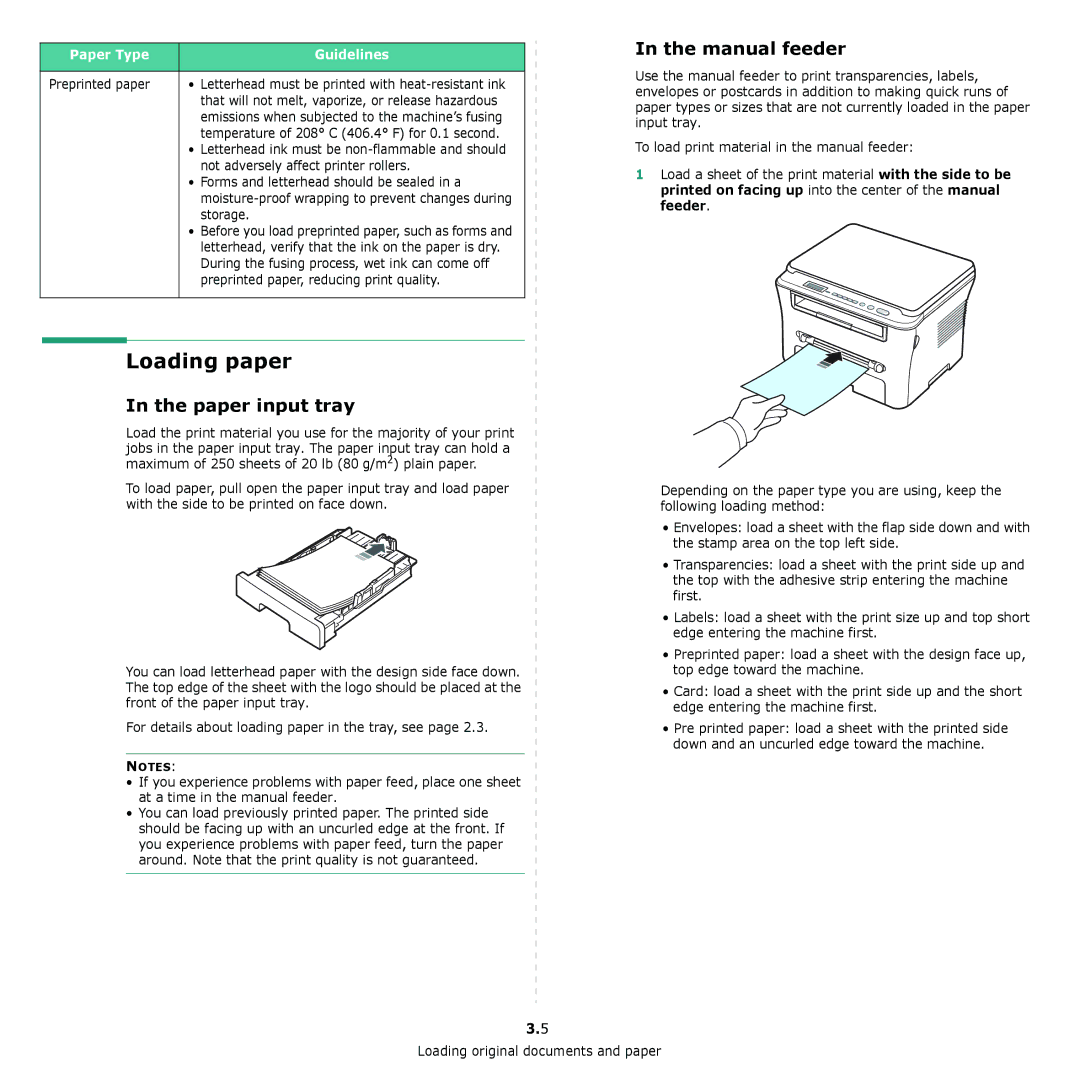
Paper Type | Guidelines |
|
|
Preprinted paper | • Letterhead must be printed with |
| that will not melt, vaporize, or release hazardous |
| emissions when subjected to the machine’s fusing |
| temperature of 208° C (406.4° F) for 0.1 second. |
| • Letterhead ink must be |
| not adversely affect printer rollers. |
| • Forms and letterhead should be sealed in a |
| |
| storage. |
| • Before you load preprinted paper, such as forms and |
| letterhead, verify that the ink on the paper is dry. |
| During the fusing process, wet ink can come off |
| preprinted paper, reducing print quality. |
|
|
Loading paper
In the paper input tray
Load the print material you use for the majority of your print jobs in the paper input tray. The paper input tray can hold a maximum of 250 sheets of 20 lb (80 g/m2) plain paper.
To load paper, pull open the paper input tray and load paper with the side to be printed on face down.
You can load letterhead paper with the design side face down. The top edge of the sheet with the logo should be placed at the front of the paper input tray.
For details about loading paper in the tray, see page 2.3.
NOTES:
•If you experience problems with paper feed, place one sheet at a time in the manual feeder.
•You can load previously printed paper. The printed side should be facing up with an uncurled edge at the front. If you experience problems with paper feed, turn the paper around. Note that the print quality is not guaranteed.
In the manual feeder
Use the manual feeder to print transparencies, labels, envelopes or postcards in addition to making quick runs of paper types or sizes that are not currently loaded in the paper input tray.
To load print material in the manual feeder:
1Load a sheet of the print material with the side to be printed on facing up into the center of the manual feeder.
Depending on the paper type you are using, keep the following loading method:
•Envelopes: load a sheet with the flap side down and with the stamp area on the top left side.
•Transparencies: load a sheet with the print side up and the top with the adhesive strip entering the machine first.
•Labels: load a sheet with the print size up and top short edge entering the machine first.
•Preprinted paper: load a sheet with the design face up, top edge toward the machine.
•Card: load a sheet with the print side up and the short edge entering the machine first.
•Pre printed paper: load a sheet with the printed side down and an uncurled edge toward the machine.
3.5
Loading original documents and paper
